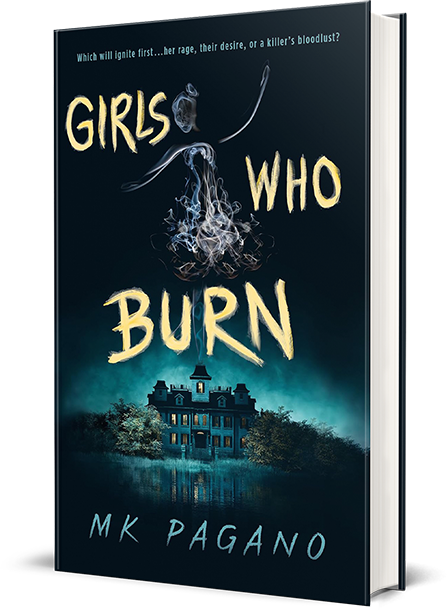Learning from the Masters: The First 250 Words

I’m still struggling with getting the beginning of my novel just right, so it’s time for another installment of this. (Installments 1 and 2 here and here).
I’ve been getting more and more into YA contemporary. Jandy Nelson, Stephanie Perkins, Robyn Schneider, Gayle Forman, Rainbow Rowell, and David Levithan are all recent faves.
But I’d argue no one has mastered this category as well as John Green.
I came to John Green a little late–the first book of his I read was The Fault in Our Stars, though I was relatively early to that one, pre-movie hype. I was hesitant (kids with cancer=depressing) and almost passed on it, but it was really the first couple of pages that convinced me that I might actually enjoy reading this book. Let’s see why:
Late in the winter of my seventeenth year, my mother decided I was depressed, presumably because I rarely left the house, spent quite a lot of time in bed, read the same book over and over, ate infrequently, and devoted quite a bit of my abundant free time to thinking about death.
Whenever you read a cancer booklet or website or whatever, they always list depression among the side effects of cancer. But, in fact, depression is not a side effect of cancer. Depression is a side effect of dying. (Cancer is also a side effect of dying. Almost everything is, really.) But my mom believed I required treatment so she took me to see my Regular Doctor Jim, who agreed that I was veritably swimming in a paralyzing and totally clinical depression, and that therefore my meds should be adjusted and also I should attend a weekly Support Group.
This Support Group featured a rotating cast of characters in various states of tumor-driven unwellness. Why did the cast rotate? A side effect of dying.
The Support Group, of course, was depressing as hell. It met every Wednesday in the basement of a stone-walled Episcopal church shaped like a cross. We all sat in a circle right in the middle of the cross, where the two boards would have met, where the heart of Jesus would have been.
I noticed this because Patrick, the Support Group Leader and only person over eighteen in the room, talked about the heart of Jesus every freaking meeting, all about how we, as young cancer survivors, were sitting right in Christ’s very sacred heart and whatever.
Why does this work?
There’s one main reason:
VOICE
Hazel has the best voice. Like she, too, understands how depressing a cancer novel can be and is mocking the genre, and herself, along with us.
Sarcastic, depressed people can be annoying–but not Hazel. Mainly because in spite of all the talk of cancer and dying, this beginning is funny. Hazel is hilarious. The part just a few sentences past this, when she starts talking about Patrick, had me actually laughing out loud. They’re not in the first 250 words but I’m quoting them anyway:
Here he is, a full-grown adult in a church basement in the 137th nicest city in America, divorced, addicted to video games, mostly friendless, eking out a meager living by exploiting his cancertastic past, slowly working his way toward a master’s degree that will not improve his career prospects, waiting, as we all do, for the sword of Damocles to give him the relief that he escaped lo those many years ago when cancer took both of his nuts but spared what only the most generous soul would call his life.
AND YOU TOO MIGHT BE SO LUCKY
Along with her humor, Hazel is real. I thankfully can’t claim to personally know much about dying young of cancer, but there’s something about her attitude that just comes through as incredibly realistic.
The voice of your narrator–especially if you’re writing in the first person–is so important. If the reader doesn’t like the voice of your story, they’re not going to like your story. And the first 250 words of your novel should give your reader a definitive feel for that voice.
A fantastic voice is really all it takes for me to be sucked into a novel. So a fantastic voice is what I need to ensure is coming through in the first 250 words of my own novel.
Photo by Pratiksha Mohanty on Unsplash

I also pass on books that seem like they can’t be anything but depressing, but maybe I’ll give The Fault in Our Stars a chance now!
It really is worth the hype, I swear!
Agreed! I though “The Fault in Our Stars” was going to be horribly corny, but I really enjoyed it. Great characters!
[…] It’s time for another installment of this! (Click here to find installments 1, 2, and 3.) […]
[…] I’ve written a lot about what we can learn from the masterful writers who’ve come before us, focusing mainly on the first 250 words of the manuscript. Today I want […]
[…] written about voice in YA contemporary (twice), I’ve written about voice in YA historical, and today I’m going to talk about the […]
[…] So I was sucked in right away. I have a soft spot for the high school losers with few friends. (Perhaps because I was one at one point.) Also, John Green just nails the voice. (Not for the first time.) […]
[…] this works for the same reason this whole book works–the voice of the narrator, Hazel. She’s funny, she’s self-deprecating, and […]